Vestibular nerve damage, also known as vestibular neuropathy, is a condition that affects the vestibular nerve. This nerve is responsible for transmitting signals from the inner ear to the brain, allowing us to maintain our balance and spatial orientation. When this nerve is damaged, it can lead to a range of symptoms, including vertigo, dizziness, and problems with hearing. In this article, we will explore the reasons why hearing tests are crucial when vestibular nerve damage is suspected.
Understanding Vestibular Nerve Damage
Vestibular nerve damage can occur for various reasons, including viral infections, head trauma, and certain medications. It is important to note that while vestibular nerve damage is often associated with balance disorders, it can also impact hearing. The vestibular nerve plays a crucial role in transmitting sound information to the brain, and any impairment in its function can lead to hearing difficulties. Therefore, it is vital to evaluate both balance and hearing when vestibular nerve damage is suspected.
The Role of the Vestibular Nerve in Hearing
To understand the link between vestibular nerve damage and hearing, it is important to recognize the intricate connection between the vestibular system and our auditory system. The vestibular nerve, along with the cochlear nerve, is a branch of the eighth cranial nerve, also known as the vestibulocochlear nerve. While the cochlear nerve is primarily responsible for transmitting auditory information, the vestibular nerve contributes to the perception of sound by providing spatial and positional cues. Therefore, any disruption in the vestibular nerve’s function can potentially affect hearing.
When sound waves enter the ear, they travel through the ear canal and cause the eardrum to vibrate. These vibrations are then transmitted to the cochlea, a spiral-shaped structure in the inner ear. The cochlea is filled with fluid and contains tiny hair cells that convert the vibrations into electrical signals. These electrical signals are then transmitted to the brain via the cochlear nerve, allowing us to perceive and interpret sound.
However, the vestibular nerve also plays a crucial role in the hearing process. It provides the brain with important information about the position and movement of the head, which is essential for maintaining balance and spatial orientation. This information helps the brain to process and interpret sound accurately. Therefore, any damage to the vestibular nerve can disrupt this intricate system, leading to hearing difficulties.
Symptoms Indicative of Vestibular Nerve Damage
When vestibular nerve damage occurs, it can manifest in various ways. Patients may experience dizziness, vertigo, imbalance, and problems with coordination. Additionally, hearing loss or difficulties in processing sounds may also be present. It is important to note that these symptoms can vary in severity and duration, depending on the extent of the nerve damage. Consequently, it is crucial to identify and evaluate these symptoms through a comprehensive hearing test to determine the underlying cause and guide appropriate treatment options.
Furthermore, vestibular nerve damage can have a significant impact on an individual’s quality of life. The dizziness and imbalance caused by the damage can make simple tasks, such as walking or driving, challenging and dangerous. The hearing difficulties can also lead to communication problems, affecting personal and professional relationships. Therefore, early detection and management of vestibular nerve damage are essential to minimize its impact on daily functioning and overall well-being.
Treatment options for vestibular nerve damage vary depending on the underlying cause and severity of the condition. In some cases, medication may be prescribed to alleviate symptoms such as dizziness and vertigo. Physical therapy and vestibular rehabilitation exercises can also help improve balance and reduce the impact of the damage on daily activities. In more severe cases, surgical intervention may be necessary to repair or bypass the damaged nerve.
In conclusion, vestibular nerve damage can have a significant impact on both balance and hearing. The intricate connection between the vestibular system and the auditory system highlights the importance of evaluating both aspects when vestibular nerve damage is suspected. Understanding the role of the vestibular nerve in hearing and recognizing the symptoms indicative of damage can aid in early detection and appropriate management. By addressing vestibular nerve damage promptly and effectively, individuals can regain their sense of balance and improve their overall quality of life.
The Importance of Hearing Tests in Diagnosis
Hearing tests, also known as audiometric tests, are essential in diagnosing vestibular nerve damage and evaluating the extent of hearing impairment. These tests provide valuable insights into an individual’s hearing thresholds and overall auditory function. By measuring the ability to perceive and interpret specific sounds, hearing tests enable healthcare professionals to differentiate between sensory and neural hearing loss, pinpoint the involvement of the vestibular nerve, and identify any potential abnormalities in auditory processing.
Hearing tests play a crucial role in the early detection and intervention of hearing-related issues. They are particularly important for individuals who may be at risk due to factors such as exposure to loud noises, genetic predisposition, or certain medical conditions. Regular hearing tests can help identify problems before they worsen, allowing for timely intervention and management.
How Hearing Tests Work
During a hearing test, a trained audiologist administers a series of auditory stimuli to assess an individual’s hearing capabilities. This typically involves playing a range of tones or speech sounds at different frequencies and volumes. The patient is then asked to respond in a specified manner, such as raising their hand or pressing a button whenever they perceive a sound. The results are recorded and analyzed to determine the individual’s hearing thresholds, the presence of any hearing loss, and the possible involvement of the vestibular nerve.
Modern hearing tests utilize advanced technology and equipment to ensure accurate and reliable results. Audiologists may employ various techniques, such as pure-tone audiometry, speech audiometry, and tympanometry, to assess different aspects of an individual’s hearing function. These tests provide a comprehensive evaluation of both the peripheral and central auditory systems, aiding in the identification of specific hearing impairments and their underlying causes.
Interpreting Hearing Test Results
Interpreting hearing test results requires expertise and knowledge of the intricate relationship between the auditory system and vestibular nerve. An audiologist can analyze the audiogram, a graph that displays an individual’s hearing thresholds, and identify any abnormalities or deviations from the normal range. Based on these findings, further diagnostic tests, such as vestibular function tests or imaging studies, may be recommended to confirm the presence of vestibular nerve damage. It is crucial to consult with a healthcare professional to accurately interpret and understand the implications of the hearing test results.
Once the hearing test results are interpreted, healthcare professionals can develop personalized treatment plans tailored to the individual’s specific needs. These plans may include hearing aids, assistive listening devices, auditory training, or other interventions aimed at improving communication and quality of life. Regular follow-up appointments and periodic hearing tests are essential to monitor progress and make any necessary adjustments to the treatment plan.
In conclusion, hearing tests are vital tools in diagnosing and managing hearing impairments. They provide valuable information about an individual’s auditory function, allowing healthcare professionals to identify the presence of hearing loss, determine its underlying causes, and develop appropriate treatment strategies. By undergoing regular hearing tests, individuals can take proactive steps towards maintaining optimal hearing health and overall well-being.
The Connection between Hearing and Balance
The connection between hearing and balance is intricate and interdependent. The ear, specifically the inner ear, plays a crucial role in both our auditory and vestibular systems. The vestibular system, centered in the inner ear, detects changes in head position and movement, providing important spatial information to the brain. This information is essential for maintaining balance and coordinating movements. Any disruption in the auditory system, including damage to the vestibular nerve, can have a direct impact on our balance and stability.
Understanding the connection between hearing and balance requires delving into the intricate mechanisms of the ear. Within the inner ear, there are three semicircular canals filled with fluid and tiny hair cells. These hair cells are responsible for detecting movement and changes in head position. When we move our head, the fluid in these canals moves as well, stimulating the hair cells and sending signals to the brain about the position and movement of our head. This information is then integrated with visual cues and input from other sensory systems to produce a coherent perception of balance.
It is fascinating to think about how our brain processes the information from the inner ear to maintain balance. The brain receives signals from the vestibular system and combines them with visual information to create a comprehensive understanding of our body’s position in space. This complex process allows us to navigate our surroundings with ease and perform tasks that require precise coordination.
How the Ear Contributes to Balance
The ear’s contribution to our sense of balance is truly remarkable. The intricate system of structures and mechanisms within the inner ear work together seamlessly to provide us with a stable and accurate perception of our body’s position. The semicircular canals, filled with fluid and hair cells, play a vital role in detecting movement and changes in head position. These canals are arranged in different planes, allowing us to sense movement in all directions.
In addition to the semicircular canals, the inner ear also contains the utricle and saccule, which are responsible for detecting linear acceleration and changes in head position relative to gravity. These structures, along with the semicircular canals, work together to provide a comprehensive understanding of our body’s orientation in space.
Furthermore, the ear’s contribution to balance is not limited to the inner ear alone. The auditory system, including the outer and middle ear, also plays a role in maintaining balance. The outer ear helps in localizing sounds, which is crucial for spatial awareness. The middle ear, with its ossicles, amplifies sound vibrations and transmits them to the inner ear. This process ensures that the auditory system is functioning optimally, which indirectly contributes to our overall sense of balance.
Impact of Hearing Loss on Balance
Hearing loss can have a significant impact on an individual’s balance and stability. Studies have shown that individuals with hearing loss are more prone to falls and have a higher risk of experiencing balance-related accidents. This connection between hearing loss and balance can be attributed to the reduced ability to perceive spatial cues and environmental sounds.
When hearing is impaired, individuals may struggle to accurately judge distances, making it challenging to navigate their surroundings safely. Additionally, the ability to orient oneself in space can be compromised, leading to a higher risk of tripping or losing balance. The loss of auditory input also affects postural control, making it more difficult to maintain a stable stance.
It is crucial to address any hearing loss promptly, especially when vestibular nerve damage is suspected. Early intervention and appropriate treatment can help mitigate the impact of hearing loss on balance and prevent potential balance-related complications. By restoring auditory function, individuals can regain their spatial awareness and improve their overall stability.
Treatment Options for Vestibular Nerve Damage
The treatment options for vestibular nerve damage depend on the underlying cause, the severity of symptoms, and the individual’s specific needs. It is essential to consult with a healthcare professional to explore appropriate treatment options and develop a tailored management plan. Treatment may involve a combination of medications, therapies, and, in some cases, surgical interventions.
Vestibular nerve damage can significantly impact an individual’s quality of life, causing symptoms such as dizziness, vertigo, imbalance, and nausea. These symptoms can be debilitating and affect a person’s ability to perform daily activities, such as walking, driving, or even simply standing up. Therefore, finding effective treatment options is crucial to help individuals regain their independence and improve their overall well-being.
Medications and Therapies
Certain medications, such as vestibular suppressants or anti-nausea medications, may be prescribed to alleviate the symptoms associated with vestibular nerve damage. These medications work by reducing the signals sent to the brain from the damaged vestibular nerve, thereby decreasing dizziness and nausea. However, it is important to note that these medications may have side effects and should be used under the guidance of a healthcare professional.
In addition to medications, vestibular rehabilitation therapy, a specialized form of physical therapy, can help improve balance, reduce dizziness, and enhance overall functioning. This therapy typically involves a series of exercises and maneuvers designed to retrain the brain to process balance information correctly. The exercises may include head and eye movements, balance training, and coordination exercises. Vestibular rehabilitation therapy is usually tailored to the individual’s specific needs and can be performed in a clinical setting or at home under the guidance of a trained therapist.
Furthermore, lifestyle modifications can also play a significant role in managing vestibular nerve damage. These may include avoiding triggers that worsen symptoms, such as certain foods or visual stimuli, practicing stress management techniques, and ensuring adequate rest and sleep. It is important for individuals with vestibular nerve damage to work closely with their healthcare team to identify and implement these lifestyle changes effectively.
Surgical Interventions
In some cases, surgical interventions may be considered for vestibular nerve damage. These procedures aim to alleviate the symptoms associated with vestibular dysfunction by targeting the affected area or restoring the function of damaged nerves. However, surgical interventions are typically reserved for severe cases or when other treatment options have been unsuccessful.
One surgical option is decompression surgery, which involves relieving pressure on the affected vestibular nerve. This procedure can help reduce symptoms such as dizziness and vertigo by removing any compressing structures or tissues that may be impinging on the nerve. Another surgical approach is nerve grafting, where a healthy nerve is used to replace the damaged vestibular nerve, restoring its function and improving balance. Additionally, cochlear implantation may be considered in cases where vestibular nerve damage is associated with hearing loss, as it can help improve both hearing and balance.
It is critical to consult with an experienced healthcare professional to thoroughly evaluate the benefits, risks, and potential outcomes of surgical interventions. The decision to undergo surgery should be made in collaboration with the healthcare team, taking into consideration the individual’s specific condition, overall health, and treatment goals.
In conclusion, treatment options for vestibular nerve damage are diverse and should be tailored to the individual’s specific needs. Medications, therapies, and surgical interventions can all play a role in alleviating symptoms and improving overall functioning. It is important for individuals with vestibular nerve damage to work closely with their healthcare team to explore these options and develop a comprehensive treatment plan that addresses their unique circumstances.
Prevention and Management of Vestibular Nerve Damage
While it may not be possible to prevent all cases of vestibular nerve damage, there are steps individuals can take to promote better ear health and reduce the risk of damage. Prevention and management strategies include adopting a healthy lifestyle, protecting the ears from excessive noise exposure, and seeking regular check-ups and early detection of any potential problems.
Lifestyle Changes for Better Ear Health
Maintaining a healthy lifestyle can have a positive impact on overall ear health and reduce the risk of vestibular nerve damage. This includes avoiding smoking, managing stress levels, and engaging in regular physical exercise. Additionally, it is important to practice good hygiene by keeping the ears clean and dry to prevent infections or other issues that may affect the vestibular nerve.
Regular Check-ups and Early Detection
Regular check-ups with a healthcare professional specialized in ear health and audiology are crucial for early detection of potential problems. Routine examinations, including comprehensive hearing tests, can help identify any changes in hearing thresholds or underlying issues that may require intervention. Early detection allows for timely management and potentially reduces the risk of further damage to the vestibular nerve.
In conclusion, when vestibular nerve damage is suspected, it is essential to evaluate both hearing and balance. Hearing tests play a vital role in diagnosing and understanding the implications of vestibular nerve damage. These tests provide valuable insights into an individual’s auditory function, enabling healthcare professionals to determine the extent of hearing loss and the potential involvement of the vestibular nerve. By recognizing the connection between hearing and balance and addressing any hearing loss or imbalance promptly, individuals can seek appropriate treatment options and maintain their overall well-being. Consulting with a healthcare professional experienced in audiology and vestibular disorders is crucial for accurate diagnosis and personalized care. Remember, when it comes to your health, knowledge and proactive management are key.




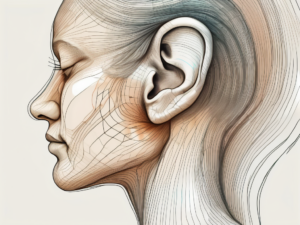
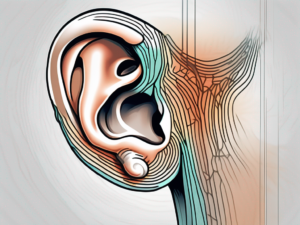
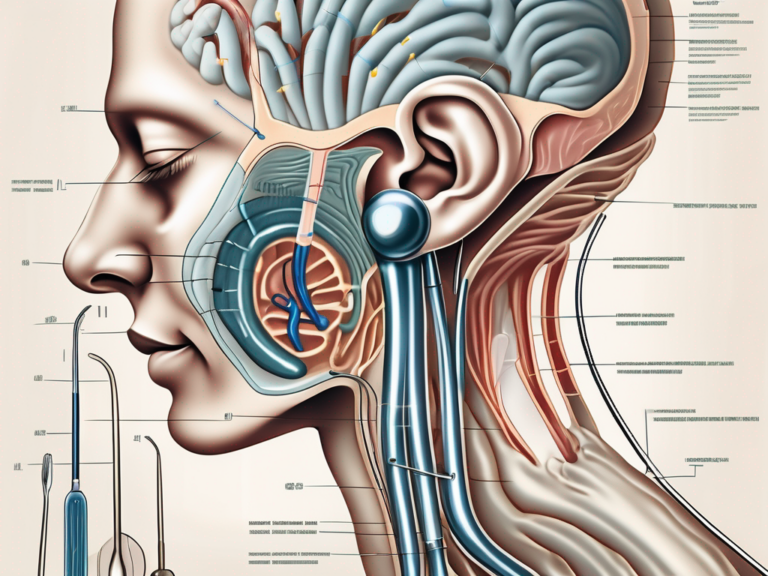
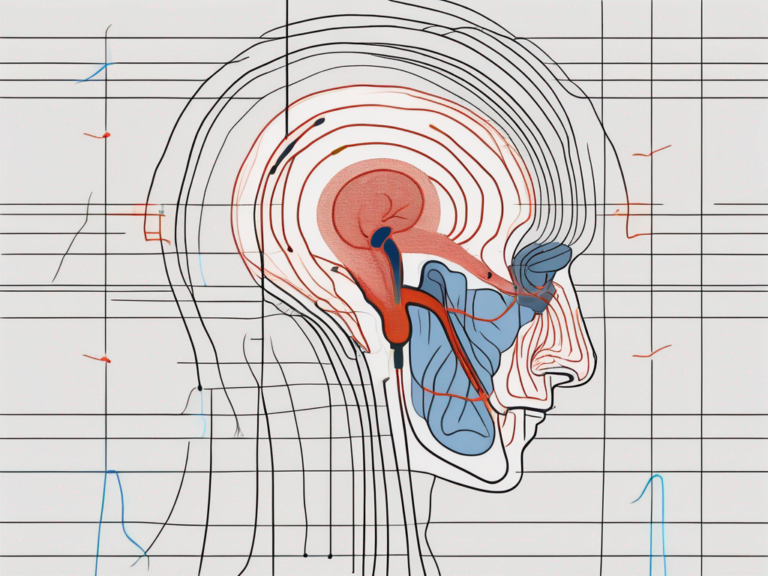
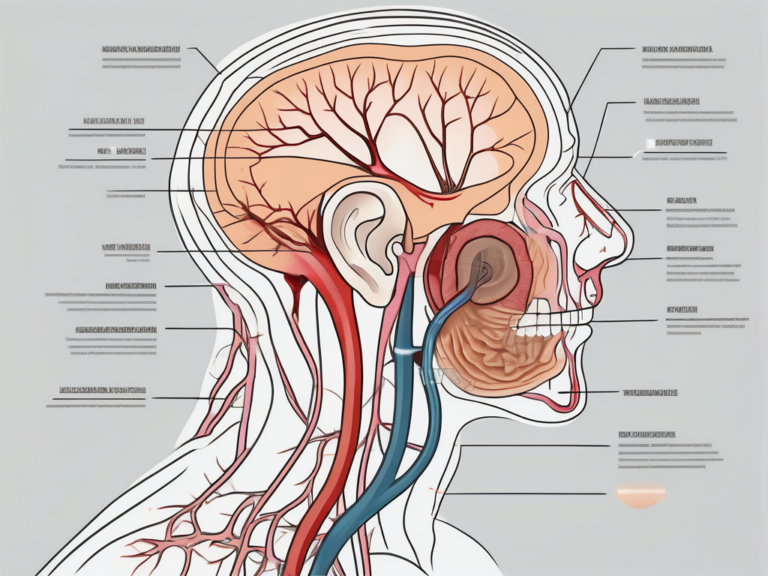
+ There are no comments
Add yours